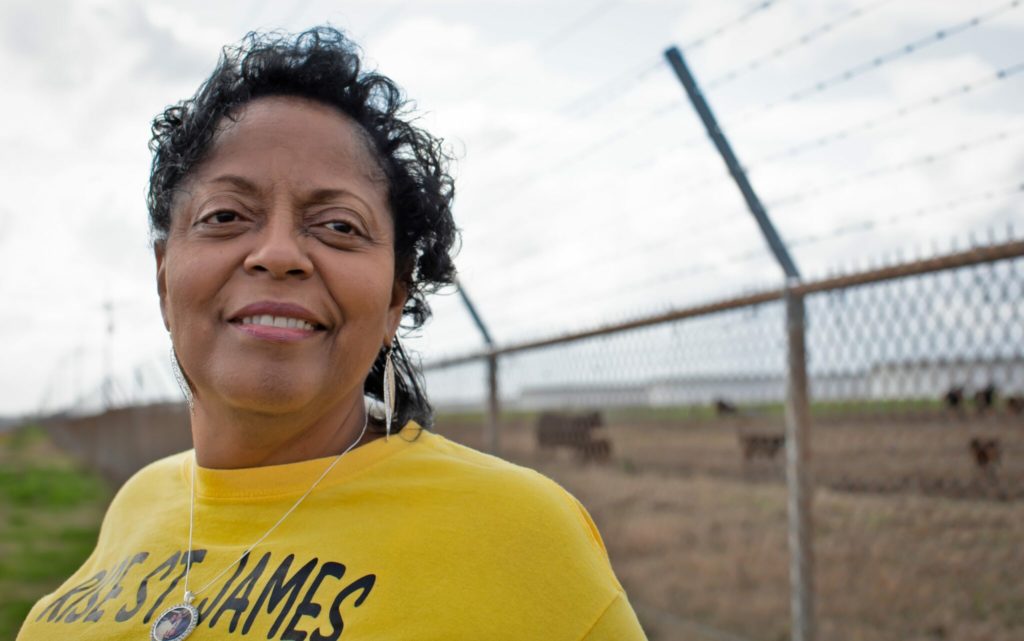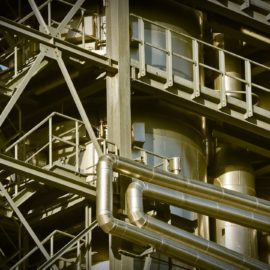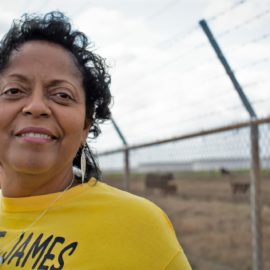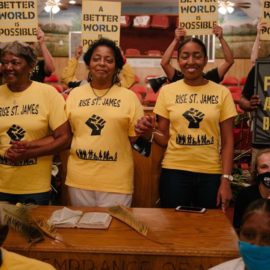
(Photo provided by Goldman Environmental Prize)
Sharon Lavigne and Rise St James are breaking the rules by doing good trouble.
Sharon Lavigne and her group, RISE St. James, have done what few environmental justice organizations have been able to do: stem the growth of petrochemical plants in the industrial corridor between New Orleans and Baton Rouge, an area commonly referred to as Cancer Alley. Her activism was instrumental in halting the development of the $1.9 billion Wanhua plastics complex along a 10-mile stretch of the Mississippi River that already has 17 industrial plants. She and RISE St. James also helped put a temporary halt on the $9.4 billion Formosa plastics complex planned near the Sunshine Bridge. In 2019, an investigation by The Advocate, The Times-Picayune and ProPublica found that Formosa and other new industry in St. James posed a serious health risk for the predominantly poor, Black residents along the river. Lavigne was recently named the North American recipient of the 2021 Goldman Environmental Prize for her work to mobilize peaceful protests against industrial pollution.
nola.com
This is an edited interview with Sharon. Tell me about the St. James you remember growing up and how it’s changed in your lifetime.
We didn’t have all these chemical plants. We had clean water and we used to breathe clean air and have productive soil. I grew up on gardens and fresh vegetables. My dad had hogs, cows and chickens. He had six children and we all were out in the garden, picking stuff and cleaning it. And we were never, ever sick. Nobody heard about anybody with cancer. Nobody had liver diseases. So many people have asthma now. We can’t breathe the air. You can’t get up in the morning and go outside and take that deep breath of clean air. You better not. Oh my God, you better not.
You were a teacher before you were an environmental justice organizer. What kind of teaching did you do and how do you think it’s helped in your campaigns for environmental justice?
I was a teacher for 38 years. I taught students with disabilities. Oh, I enjoyed it to the highest. I was caught between a rock and a hard place when I started doing environmental work, because I had to make a decision if I wanted to leave teaching. But I felt like somebody needed to speak up. I didn’t know I was becoming an environmentalist. I feel like I’m still teaching — teaching the public. I’m teaching them what I didn’t know and the things that I’m learning. And I’m being taught. So I’m passing what I’m learning on to the public.
You’ve been credited with helping block the Wanhua plastics plant. Why did you oppose it and how were you able to block it?
We started voicing our opinion by going to the parish council meetings and telling them we didn’t want this in our parish. We already had a lot of plants, and we didn’t want any more to come here. They felt like activists were coming out and talking against them. But (Wanhua) was having problems with the land that they were going through, so it wasn’t just us speaking out. But we played a part in it.
Another project you’ve opposed is the Formosa plant.
That’s the reason why we formed RISE St. James because (Formosa) was trying to come in.
Last year, the U.S. Army Corps of Engineers put a hold on the project to do a more thorough review of the environmental impacts, a move the region’s Army Corps office rarely does. Where do things stand now with that project and your campaign against it?
It’s still on hold. It’s up to the Army Corps. Are they going to try to save lives or are they going to destroy lives? It’s up to them. If they want us to live, they will tell Formosa to go to hell.
Supporters of these projects often point to the good-paying jobs they’ll bring to the area. What are your thoughts about the balance between jobs and pollution?
If they’re bringing good jobs, put it in your community. I’d rather have life and good health than a job that’s going to poison me. But the good jobs from these plants, they go to people that live outside St. James.
Last year, you were a recipient of a global honor, the Goldman prize? How did it feel?
I said, “Dear Lord, you mean to tell me I’m being honored for the work that you told me to do?” That was an honor. A privilege. And it was overwhelming to know people thought of me like that. I thought how do they know me? Where did they find my name?
What’s your advice for other communities who might be concerned about industrial pollution?
Stand up for your community. Speak up. Let your voices be heard. Find out what’s going on. Get your data (and) get everything straight so you know what you’re talking about. First of all, seek God and ask God to guide you and tell you what to do, and you will not go wrong. And if you need help, call me. I’ll come to your community and help you.
A worthy honor to a worth person. Congratulations, Sharon. You can tell she is not a politician as she answered the questions and used “we” and “us”.



